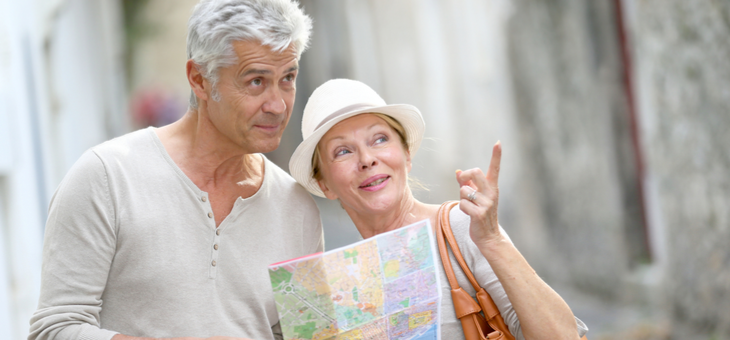More of us have succeeded in our efforts to reduce reliance on plastics at home, but it’s not so easy when travelling.
Unfamiliar surroundings often present problems for those wanting to reduce their plastic waste footprint. It is all too easy to fall into the convenience traps of bottled water and shopping in fast food stores while away from home. The lure of saving space in our luggage with travel-sized toiletries can also see us packing too much single-use plastic.
So, how can you tread lightly when travelling?
Rethink your toiletries
Instead of plastic bottles of shampoo, take a shampoo bar to wash your hair. If you need to take a razor, replace the plastic disposal ones with a metal razor that will last your whole trip – and beyond. Forget about having a packet of wet wipes, take a face washer. You can reuse it many times instead of a single-use wet wipe that ends up in landfill. Rather than a disposable plastic toothbrush, try a recyclable alternative such as post-consumer recycled polypropylene or wood.
Take your own water bottle
The average traveller on a two-week holiday uses 30 bottles of water and more than a million plastic bottles are bought around the world every minute. That makes a lot of plastic waste. In many countries it is not advisable to drink water from the taps, so it is worth investing in a filter bottle, such as SteriPEN or LifeStraw to purify your drinking water. It’s helpful to look at online reviews of these filter bottle products to decide which is best for you.
Pack some cloth tote bags
Beautiful, bright, re-useable cloth tote bags take virtually no room in your luggage, can be folded inside each other and popped into your day or handbag to take with you on your travels. You may need them if you go to a market to purchase food, or to carry any shopping or souvenirs you may buy – and they look so much better than a tacky plastic bag.
BYO on-board comforts
Long journeys inevitably involve a lot of unwanted plastic. The blankets, pillows and headphones you are supplied with on your long-haul flight are wrapped in polythene. Bring your own on-board comforts to reduce your plastic footprint. A cashmere or scarf of similar material will do double duty as a blanket and a travel wardrobe accessory. Your own travel pillow would be much more comfortable than that flattened piece of foam the airlines provide, and your own noise-cancelling headphones would be absolute bliss. Just be sure you have the correct adapter plug for your headphones.
Do a spot of people-watching at a café
If you can’t do without your caffeine fix while overseas, take the time to sit, relax and watch the world go by at a local café. Don’t have your coffee to go as most types of disposable cups are not recyclable and many are made from plastic.
Stay away from supermarkets
It’s tempting to save valuable sightseeing time by shopping for supplies at a supermarket, but purchasing food not wrapped in plastic can be tricky. Try local markets and street food stalls instead. Take along your cloth tote bags and discover some of the local foods and indulge in fresh seasonal fruits and vegetables. An added bonus is that you will be helping to boost the local economy.
Say no to straws
Cocktails and holidays go hand in hand, but most of these delicious concoctions are served with a plastic straw. Just say ‘no straw, thanks’ to your bartender, but if you absolutely cannot sip a cocktail without a straw be sure to pack your own stainless steel or glass straw.
Brush up on the local language
Learn a couple of key phrases such as ‘no bag, thanks’ and ‘I don’t need a straw’ so you can communicate your intention to not use plastics.
Are you trying to reduce the amount of plastic you use? What measures have you taken when travelling?
Related articles:
The essential tote bag
How to be a more responsible traveller
Choosing meaningful souvenirs

